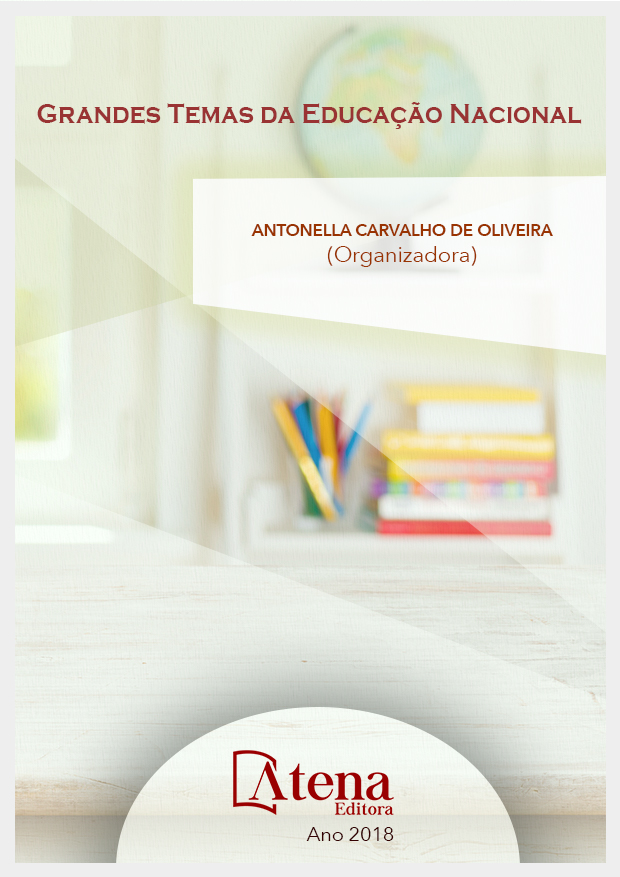
(DES) IGUALDADE DE GÊNERO E CURRÍCULO À LUZ DOS DIREITOS HUMANOS E UNIVERSAIS DAS MULHERES
Por entender que as relações de
gênero e da mulher nos reportam essencialmente
aos direitos humanos, elencamos textos dos
documentos curriculares norteadores da
Educação Básica brasileira, os quais foram
paralelamente analisados à luz dos textos dos
documentos dos Direitos Humanos Universais
e das Mulheres. Por conseguinte, este trabalho
é oriundo de uma pesquisa de abordagem
qualitativa do tipo de estudo documental, no
qual buscamos provocar um debate sobre
gênero e os direitos da mulher/menina no
âmbito educacional. Para endereçar o objetivo
em questão empregamos a análise de conteúdo
de Bardin (1977) para tratamento dos dados. A
coleta e a análise de dados ocorreram em quatro
momentos: seleção dos documentos, leitura
criteriosa, seleção dos conteúdos e análise dos
dados. Os dados obtidos dialogam com autores
como: Scott (1995), Foucault (1987), Beauvoir
(1967), Louro (2000- 2011), Viana e Unbehaum
(2004-2006), Evedove (2012). Tivemos a
pretensão de discutir, como os documentos
oficiais brasileiros, encaminham compromissos
para uma política de currículo que demonstre
preocupação efetiva com a compreensão de
gênero, igualdade de gênero, formação e
empoderamento da mulher/menina. Inferimos
que os textos dos documentos que produzem as
diretrizes curriculares no âmbito da Educação
Básica brasileira, apesar de trazerem alguns
princípios ainda que velados, não dialogam de
forma efetiva com o que revelam os textos dos
Direitos Humanos Universais e das Mulheres,
pois evidenciaram timidamente, prerrogativas
para uma política de currículo que contemple
a inserção destas demandas no âmbito
educacional.
(DES) IGUALDADE DE GÊNERO E CURRÍCULO À LUZ DOS DIREITOS HUMANOS E UNIVERSAIS DAS MULHERES
-
DOI: Atena
-
Palavras-chave: Igualdade de Gênero. Currículo. Direitos Humanos Universais e das Mulheres.
-
Keywords: Gender Equality. Curriculum. Universal and Women’s Human Rights.
-
Abstract:
Because we understand that
gender and women’s relations are essentially
related to human rights, we have attached
texts from the curricular documents that guide
Brazilian Basic Education, which have been
analyzed in the light of the texts of the Universal
Human Rights and Women’s Rights documents.
Therefore, this work comes from a qualitative
study of the type of documentary study, in which
we seek to provoke a debate about gender and
women’s rights in education. To address the objective in question we used the content analysis of Bardin (1977) for data treatment.
Data collection and analysis took place in four moments: document selection, careful
reading, content selection and data analysis. The data obtained are dialogues
with authors such as Scott (1995), Foucault (1987), Beauvoir (1967), Louro (2000-
2011), Viana and Unbehaum (2004-2006), Evedove (2012). We had the pretense of
discussing, like official Brazilian documents, the commitments to a curriculum policy that
demonstrates an effective concern with the understanding of gender, gender equality,
formation and empowerment of women / girls. We infer that the texts of the documents
that produce the curricular guidelines in the scope of Brazilian Basic Education, despite
bringing some principles that are veiled, do not effectively dialogue with what the texts
of Universal Human Rights and Women reveal, prerogatives for a curriculum policy that
contemplates the insertion of these demands in the educational scope.
-
Número de páginas: 15
- Franciéli Arlt Lopes


